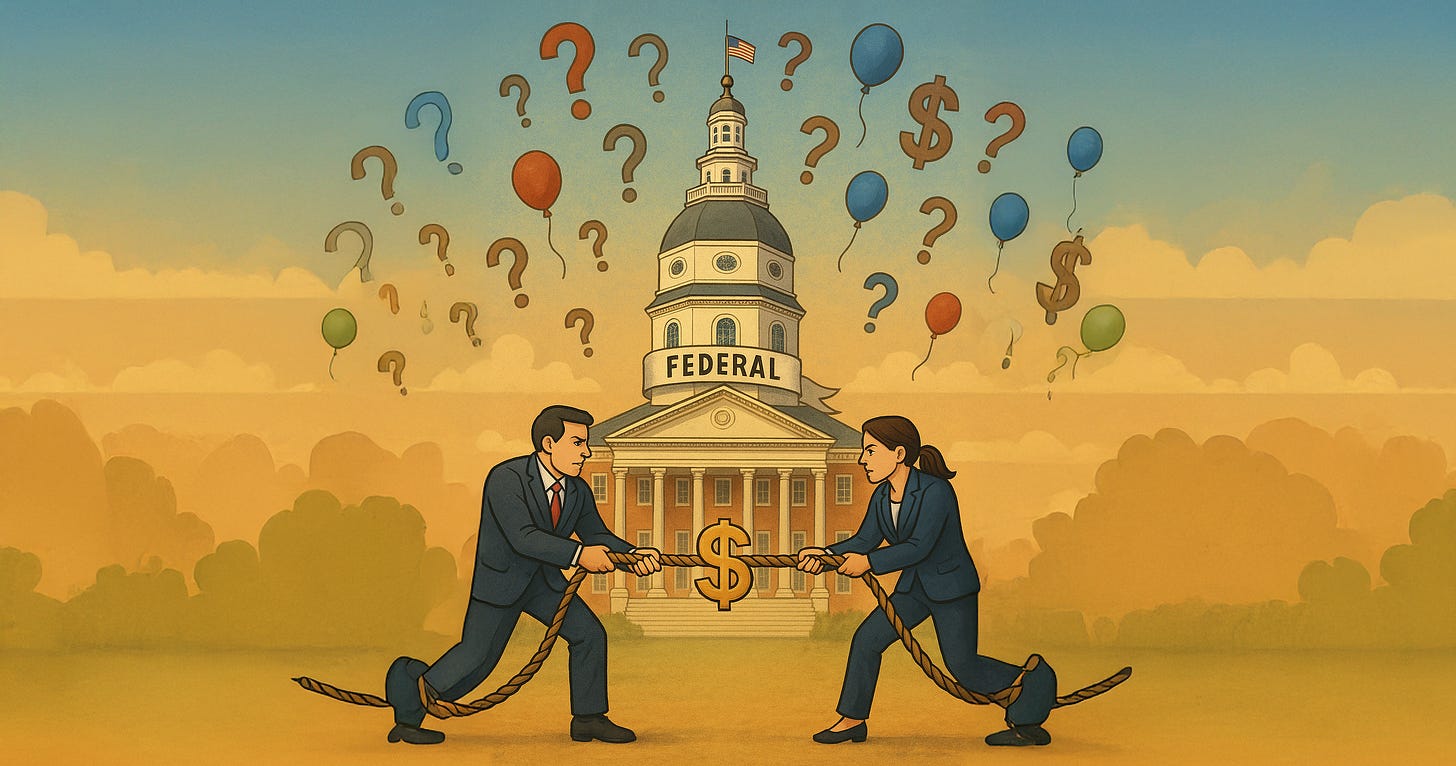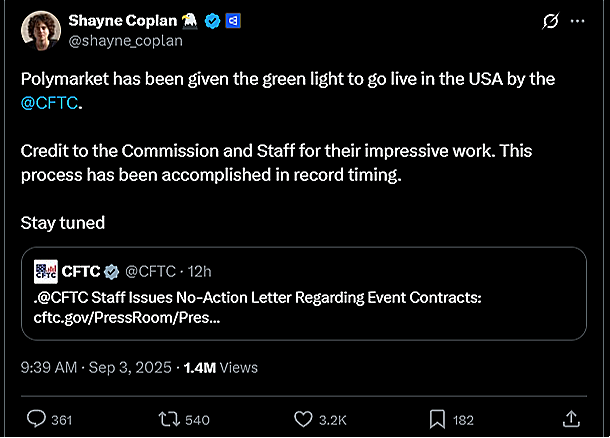Sports Markets Are Heating Up
Part VI: Parsing the state law prong of the Maryland decision
Last week, we planted our flag: the Maryland decision against Kalshi may not stand the test of time. Why? Because it stretches federalism past its breaking point.
Today, we start unpacking the ruling. Judge Abelson laid out eight reasons in support of his conclusion. We’re going to walk through them, one by one, with a focus on where state authority ends and federal jurisdiction begins. Let’s kick things off with Reason #1.
Judge Abelson’s First Point:
First, the statutory Special Rule in 7 U.S.C. § 7a-2(c) itself confirms that Congress intended for at least some state laws to operate alongside the CEA, not to be preempted by it.
The crux here is how to interpret the state law prong of the Special Rule: “activity that is unlawful under and Federal or State Law.”
This issue was front and center in Kalshi v. CFTC. Judge Abelson reasoned that if federal law is guided by the state law when it comes to the legality of the contract (as opposed to the underlying), it can’t simultaneously preempt it. That’s not an illogical inference. The problem is the premise. Let’s examine what Kalshi said during oral argument when they were battling the CFTC:
So starting with the unlawful activity, the way we understand that is that it refers to contracts where the underlying event relates to some unlawful act. Okay? So for example, if you had a contract on whether the D.C. murder rate in 2024 is going [to] exceed a certain level, if you had a contract on whether a particular piece of art in the National Gallery is going to be stolen within a period of time, those are unlawful acts. If you had a contract on those events, it would fall within the scope of number one.
I think it fits the text and I think it fits the context of the statute, and that's sort of an important point. It aligns it with the terrorism, assassination and war provisions that immediately follow it. If you think about terrorism, assassination and war, the common denominator is they're bad. Those are things we don't -- they're bad things. Congress is concerned about people profiting from bad things and about incentives to do bad things. Right?
Using my hypothetical of the D.C. murder rate, you don't want somebody to go hire a hit man to get the rate above a level so you can make money. Bad incentives. It also just feels offensive to have people profiting from, you know, there was a terrorist attack, I'm going to make a lot of money from that. That's sort of the gist of 2, 3 and 4.
If you read 1 the way we read 1, it lines up perfectly with that. We don't want to incentivize crime, we don't want to have people profiting from crime, so it's all parallel.
Exactly. The statute is designed to prevent contracts that incentivize criminal behavior (like terrorism or assassination). That’s why election markets don’t trigger this prong–they’re not unlawful. But contracts like the now infamous dildo toss contracts in a WNBA game? That’s a different story.
Yes, We’re Talking About Dildos
We don’t take pleasure inserting dildos into a serious legal discussion (no pun intended), but this is a real contract. Polymarket–recently named one of Time’s 2025 - 100 Most Influential Companies–offered it. Technically, Polymarket isn’t live in the U.S. just yet, and that contract wasn’t available to U.S. traders. But that’s changing fast.
Polymarket recently acquired a DCM and Donald Trump Jr.--already a strategic advisor to Kalshi–is now advising Polymarket. And yesterday, its CEO declared on X that the platform has the green light to return to the U.S. The rivalry is heating up:
So, yes, the CFTC still gets a pass on these contracts–for now. But let’s be honest: Does anyone really believe Polymarket is going to shy away from edgy, borderline-offensive contracts? With the Commission down to a single commissioner, enforcement feels… unlikely.
Final Thoughts:
Kalshi’s reading of the Special Rule’s state prong is not just plausible–it’s compelling. And that interpretation undercuts Judge Abelson’s first argument. If federal law is only concerned with the legality of the underlying event, not the contract, then the state law prong doesn’t do the work Judge Abelson thinks it does.
We’ll be back soon with an analysis on Reason #2. Spoiler: It doesn’t get any better for the state.





